1 October is World Vegetarian Day, followed swiftly by World Vegan Day on 1 November which also marks the start of Vegan Month. Then, there’s Veganuary where people try to be vegan for the entire month to raise money for charity. Veguary, in February, is the same but for vegetarian-based philanthropy. But what if you like meat? Well, how about going on a flexitarian diet?
Top Rated Shopping List App
Share And Synchronize An Unlimited Number
Of Lists With Others Instantly and Easy
Contents
To V, or Not to V?
Whilst there is a lot of worth in both vegetarianism and veganism, it can be surprisingly difficult to cut meat and dairy out of your new healthy diet.
Why?
Well, for starters, some foods are addictive! Bacon, cheese, fried chicken, and cheeseburgers are among the list of foods that are as “addictive as heroin or cocaine” according to Keck Medicine of USC. Therefore, it’s no wonder that bacon has stereotypically been the Achilles heel of wannabe vegetarians and vegans.
Elsewhere, a study found that 84% of vegetarians and vegans eventually return to eating meat. Some cite giving in to the usual irresistible urges that follow giving up anything. Others claim to have “Meatmares” where they dream about meaty foods!
Some tell of the social stigma surrounding vegetarianism and veganism having pressured them back into eating meat. There are even claims of returning to meat because of declining health.
In short: being vegetarian or vegan can be hard work. But what if there was an alternative?
Well, let us introduce you to the flexitarian diet.

What is a Flextarian?
Flexitarian is a combination of two words: “flexible” and “vegetarian”.
But it doesn’t refer to a set of vegetarians that are particularly supple, neither are flexitarians people who eat only bendy foods. Instead, it refers to being able to enjoy the odd bit of meat now and then, but prioritizing plant-based healthy eating.
Think of it as vegetarianism, but cheating a little, or being semi-vegetarian.
This may sound a little mean-spirited, but it’s actually the whole point of a flexitarian diet. You eat a majority of vegetarian/vegan meals but you’re still allowed meat should you want it.
In fact, you could consider it the reverse of the McCartneys’ famous “Meat Free Mondays”: an initiative started by world-famous vegetarian and his daughters to get people to consume less meat. A flexitarian diet is more like “Meat Only Allowed On Mondays (Or Any Other Chosen Day of the Week)”, which admittedly isn’t as catchy.
As long as you’re making food choices that see you eating more vegetarian or vegan meals than meat ones, you can consider yourself on a flexitarian diet!
It really is as simple as that.
Why Go On A Flexitarian Diet?
There are 5 main reasons people might choose to go on a flexitarian diet which are very similar to why people choose to go vegetarian or vegan: ethical, environmental, health, weight loss, and financial.
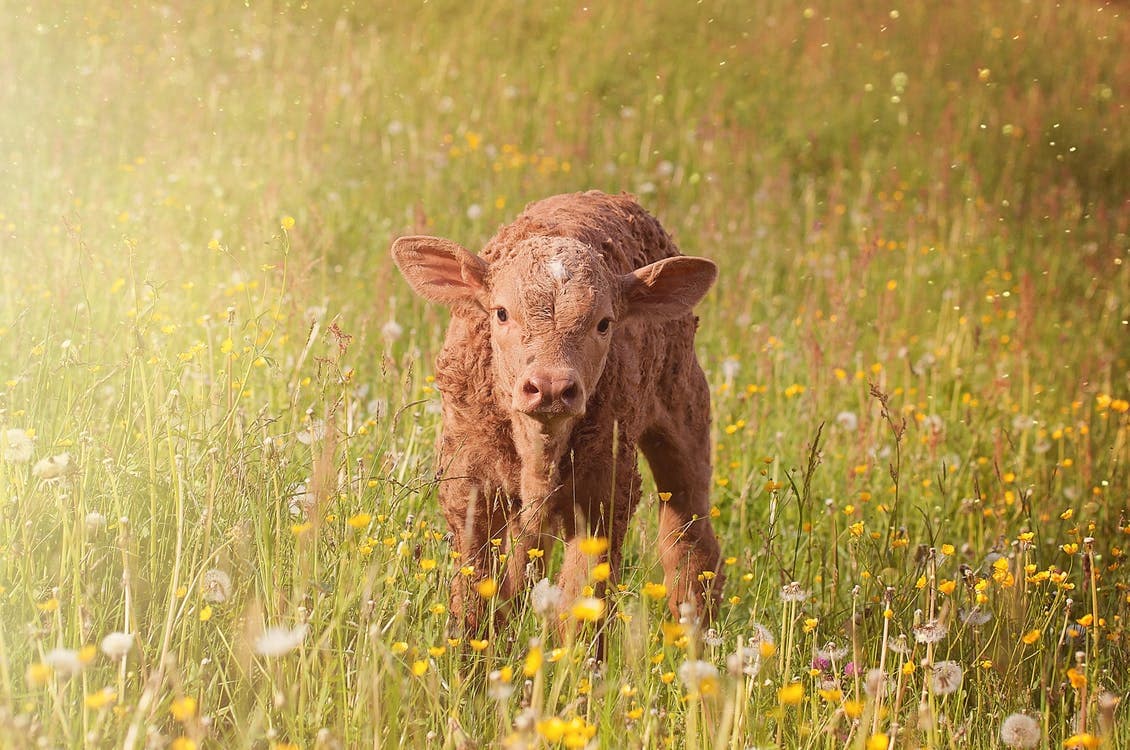
Reason #1: Ethics
This is the main reason most people want to reduce the amount of animal products and meat consumption from their diet. The meat and dairy industry are quite notorious for the mistreatment of animals. Even if some practices are considered “humane”, the animals are still being slaughtered or exploited whether they’re being pampered or not!
Although you won’t be withdrawing your custom completely from these industries, eating less meat means you will be creating less demand by being on a flexitarian diet. If you only ate dairy, egg, meat or poultry meals for only 1 day a week instead of 7, that’s an 85% decrease in the demand you create. If everyone went on a flexitarian diet, this would dramatically affect demand, and therefore the industries’ practices.
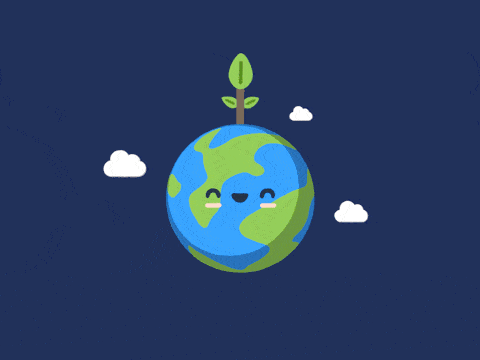
Reason #2: Environment
The meat and dairy industry are also starting to draw a lot of concern due to their impact on the environment. Infamously, the creation of grazing grounds for beef cattle has been a big concern contributing to 80% of Amazon deforestation. In recent years deforestation for soy production has also become an issue, especially as 80% of soybeans end up as feed for beef cattle. And that’s just one area of the meat industry!
Greenhouse gases produced by these industries is also under scrutiny with 18% of all CO2 emissions being attributed to animal agriculture alone. Animal agriculture also consumes 150% more water per gram of protein compared to other crops such as legumes.
Undeniably, the meat industry has a massive impact on the environment. Reducing the amount of meat and switching to a flexitarian diet means can help lessen the damage to our ecosystems.

Reason #3: Health
Saturated fat has been traditionally seen as a major detriment to our health, being said to cause heart disease and high cholesterol. Meat contains a lot of saturated fat. However, as more and more evidence comes to light, a more complicated picture is starting to emerge. The negative effects of refined sugar and salt in our diet is also being placed under more scrutiny as a result. Therefore, a flexitarian diet can also help prevent or decrease the risk of type 2 diabetes.
Either way, fruits and vegetables are still seen as much healthier food to eat. They’re naturally lower in fat and salt than meat and contain only natural sugar. Eating more fruit and veg is generally seen as a good thing. In the UK and other countries, there’s been a massive push for people, whatever their dietary choice, to eat at least 5 portions of fruit and veg a day.
Some suggest that being on a flexitarian diet may be better for your health than vegetarianism or other plant-based diets. This is because plant-based proteins aren’t “complete” like those you would find in meat. We need the have an intake of the full range of proteins to stay healthy, meaning a fully vegetarian diet or vegan diet makes it difficult to ensure this. By eating meat now and again, you’re not missing out on the animal proteins your body needs.

Reason #4: Weight Loss
When it comes to wanting to lose weight, a flexitarian diet is actually a viable option. US News, who comprehensively rank popular diets each year, rates a flexitarian diet as 3rd best diet in the world. Its research shows that flexitarians are 15% slimmer than meat eaters, and their life expectancy is 3.5 years longer on average.
Reason #5: Money
Food prices are rising around the world. But vegetables are still generally cheaper than meat. So not only is switching to a more plant-based meal plan healthier, but it’s also easier on your bank balance.
What To Buy and Eat?
So, you’ve decided to go on a flexitarian diet. Hooray for you.
But what should be on a flexitarian diet food list?
Being vegetarian or vegan is far more than eating just salads every day of the year. One thing you certainly shouldn’t do is make your meals so plain and repetitive that eating becomes a chore: they should be delicious and enjoyable. Vegetarian and vegan meals are surprisingly varied. Be sure to check out the countless vegetarian and vegan ideas and recipes on the internet to help kick-start your healthy diet.
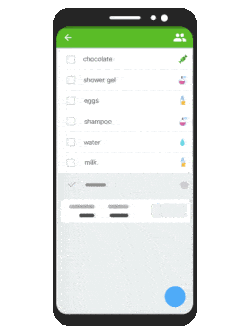
Let us help you create your own flexitarian diet food list!
- Download the highest rated shopping list app for free
- Always with you on any device
- Buy exactly what you planned
- Make and share shopping lists together
- See items automatically grouped into categories
But you can start by taking your favorite meals and removing the meat and/or dairy and replacing them with vegetables.
Loopy for lasagne? Try a Mediterranean roast vegetable one. Barmy for burgers? Go for a tasty 3-bean patty instead.
But if you’re feeling more adventurous and want to widen your variety of meals in your eating plan, there are two food groups we highly recommend you make an essential part of your flexitarian diet.
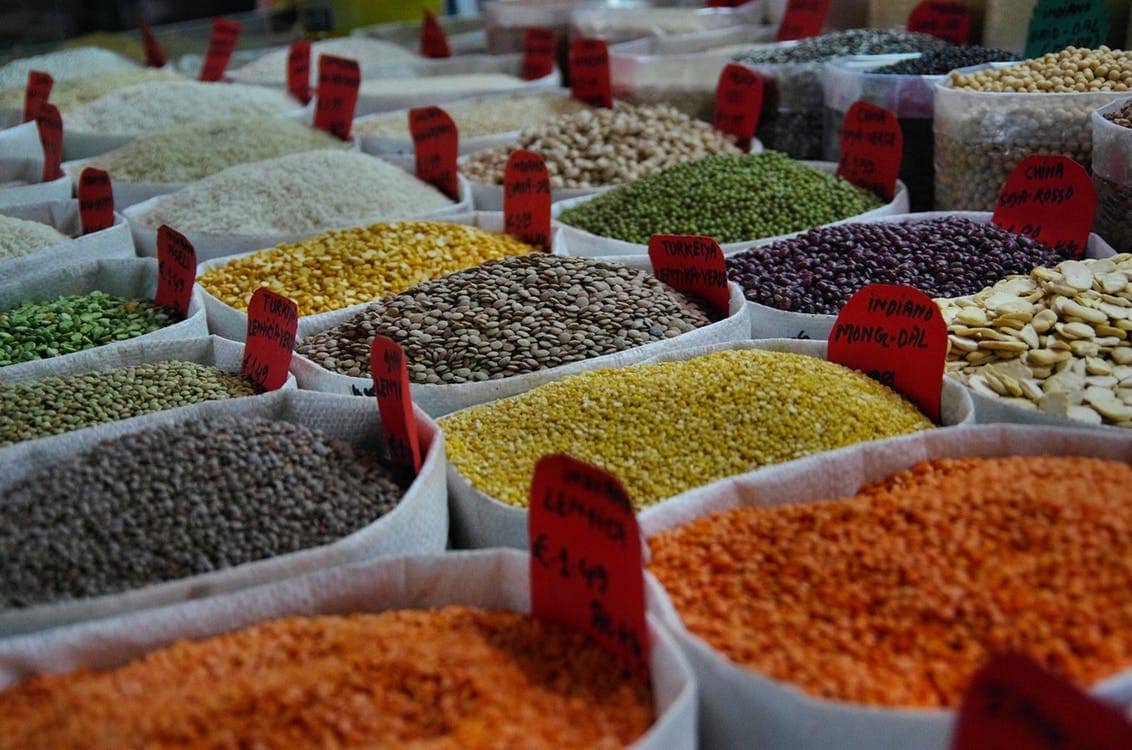
Legumes
Also known as “pulses”, these include:
- Peas
- Beans
- Lentils
- Nuts
The best thing about these is that they’re high in protein, so these are a great way to replace the loss of protein from not eating meat and dairy.
One of the main benefits of eating legumes regularly is that it can help you lose weight. In a study by the University of Copenhagen, a group of men were given a meal that consisted of 19% meat protein where another group had a meal with the same amount of protein but made up from legumes. The group who had the legume meal ended up eating 12% fewer calories in their next meal.
Why?
Because legumes are full of fiber. Fiber will help keep your digestive tract nice and healthy. It can also keep you feeling full for longer.
Legumes are also high in B-vitamins, which are vital to your everyday health such as supporting your metabolism and immune system. Some legumes, like soybeans, are full of properties that can reduce cancer risk.
All in all, legumes are brilliant for replacing meat and should certainly be a cornerstone of your newfound flexitarian diet. Even making a change like putting peanut butter on your toast instead of jelly/jam can help you up your protein and fiber intake.
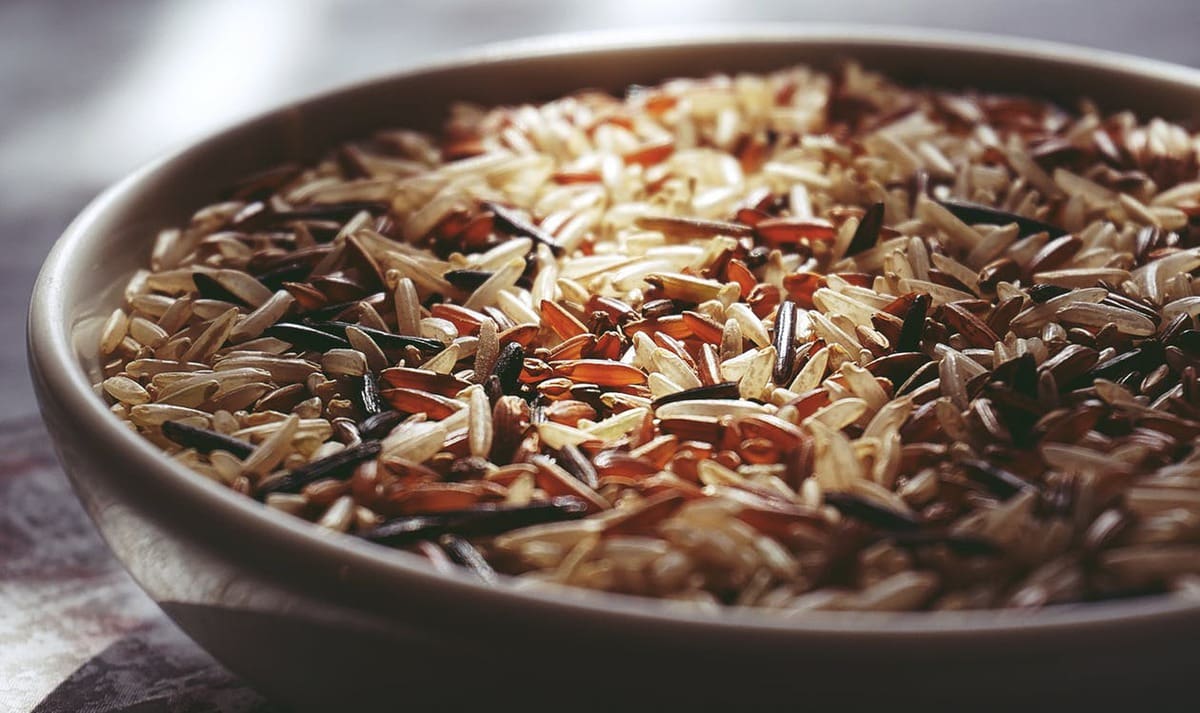
Grains and Cereals
Vegetarian zombies want to eat your grains! And you should eat them too as part of a flexitarian diet. Grains and cereals include food such as:
- Wheat
- Oats
- Rice
- Buckwheat
- Corn
Like legumes, they’re also full of fiber and B-vitamins, although they’re not as packed with proteins.
But the thing to remember is that you don’t want to be eating just any old type. You want to be looking for wholegrain or wholewheat varieties.
“Wholegrain” means that the entirety of the grain is present, including the outer shell known as the kernel. Refined grains and cereals remove the kernels before use. It’s the absence of kernels that gives white flour is colorless property.
But why should you eat wholegrain and whole wheat?
Because there’s far more fiber in these. In fact, according to Health.com, they contain around 3x more fiber than their refined counterparts.
As well as keeping you full and cleaning out your colon, fiber is claimed to:
- Lower cholesterol
- Reduce the risk of heart disease
- Regulate your blood sugar
You don’t need to completely shun food such as white bread and white pasta. These still contain fiber and aren’t bad for you at all. But you should be trying to opt for foods that contain wholegrain or wholewheat instead.
Flexitarian Diet FAQ
So, you’re planning on getting legumes and grains into your healthy diet plan. Great! But you may want to know the answers to some other questions about going on a flexitarian diet.
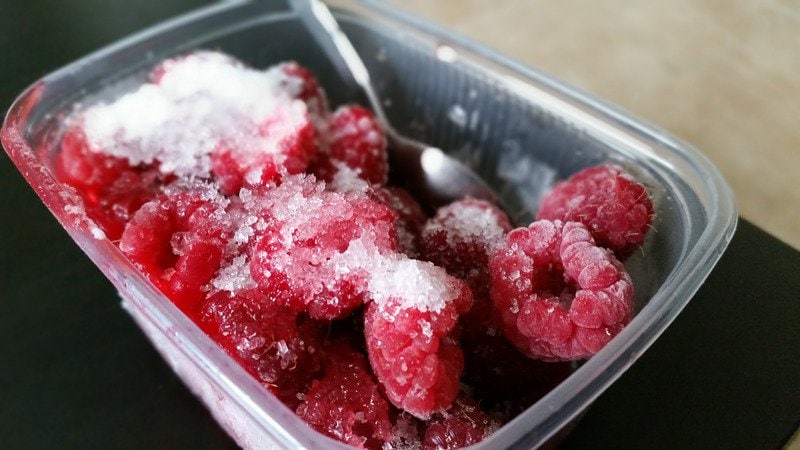 Should I buy frozen or fresh fruit and vegetables?
Should I buy frozen or fresh fruit and vegetables?
Fresh is best, right?
Fresh vegetables are indeed great. Buying fresh is seen as the most nutritious and healthiest way to consume them.
But they do have their own share of issues. The problem is that as soon as you start to prepare them, they start to lose their nutrients. If you’re not using a whole piece of fruit or veg in one go, what’s left behind is not going to be as good for you when you finally get around to finishing it. What’s more, they can go bad unexpectedly, scuppering your best-laid plans for a rather nice meal.
So, what’s the alternative?
Buying frozen, of course. But is frozen produce really as good as fresh fruit and vegetables?
With regards to nutrients, there’s little to no difference. As frozen products don’t lose much, if any, nutrients compared to their fresh counterparts. This is because they’re frozen as soon on the production line as possible.
What’s more, they keep for longer. If you need prepared (chopped etc) fruit and veg, frozen can also be very convenient. You can cook them straight from the freezer, saving you a lot of time.
The main drawback is that frozen fruit and vegetables can be up to 50% more expensive in weight than their fresh counterparts.
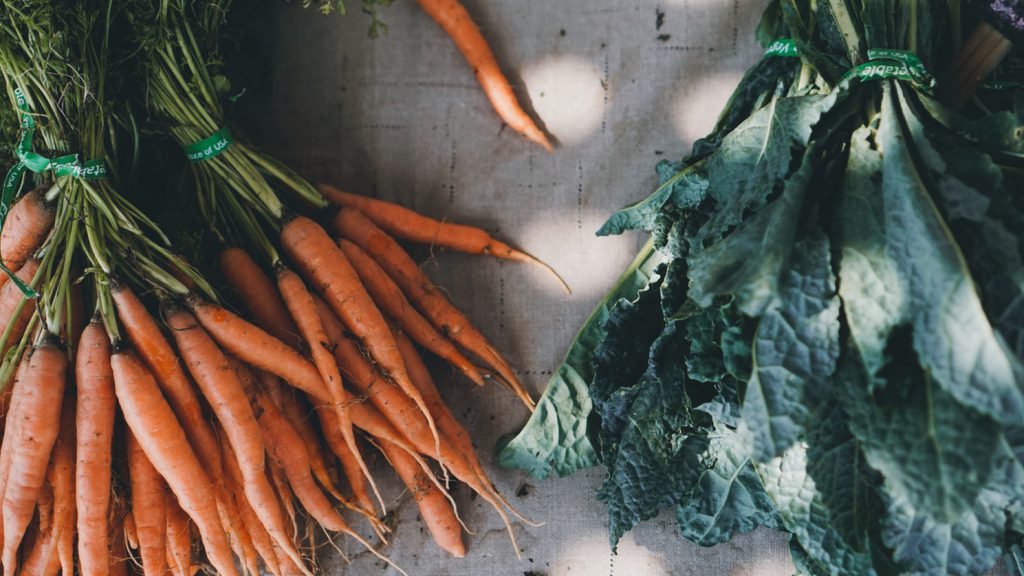 Should I go organic?
Should I go organic?
“Organic” has been a real buzzword for the past decade and beyond, and it is generally considered the epitome of ethical eating.
But what even is organic food?
Organic food is grown mainly without using any synthetic pesticides or fertilizers, or genetically modified organisms (GMOs). Conventional farmers use these to increase the amount of fruit and veg grown as well as ensuring they don’t get eaten by bugs and insects.
It actually doesn’t mean that organic farmers don’t use pesticides or fertilizers at all. It’s just that they’re very restricted to what they can use and the amounts of such. For example, a pesticide that many organic farmers use includes a natural one called Spinosad.
You only need to do a cursory search on the internet to find a gaggle of articles praising organic food as the Holy Grail of produce:
- They have higher levels of nutrients
- You don’t consume residual synthetic chemicals, which are linked to diseases such as some cancers and asthma
However, some research suggests that the increased levels of nutrients claimed aren’t significantly more than conventionally grown produce. In the UK, the Food Standards Agency concluded that organic foods have no additional health benefits at all. What’s more, the levels of residual chemicals on conventionally grown food are considered safe, and similar levels can sometimes be found on organic produce.
But organic farming does have some positive environmental impacts. Organic farming helps to maintain soil quality and prevents the runoff of harmful synthetic chemicals into the water system.
But the main problem with organic food is the cost. Consumer Reports in the USA found that, on average, organic food is 47% more expensive. Whilst this doesn’t seem like a massive mark up, the report itself mentions that the range around this average is rather sizable. For example, courgettes from one store were 3x more expensive than it’s conventionally produced counterpart.
In short: if you can afford to shop organic, why not? But if you’re going on a flexitarian diet due to trying to reduce costs, chances are there’s going to be a bigger detrimental impact on your wallet than there is a positive one on your health.
Should I buy dried or canned legumes?

Much like buying fresh or frozen produce, there’s a choice for your legumes too: dried or canned.
The biggest advantage of dried legumes is price. They are much much cheaper in terms of weight meaning you can really stock up on the protein-packed power food! The Bean Institute found that dried beans can cost 3x less in weight than canned.
However, dried legumes will need to be soaked for several hours or overnight before they can be cooked. This means you’ll really need to plan your meals. But many claim they are tastier, so the effort, should you have the time, can really pay off.
Canned legumes are much quicker to cook with. All you have to do is heat them up and put them in your meal. The result is that they’re much quicker to use as you completely eliminate the soaking time. But people using canned legumes should be wary of the amount of sodium present in these.
Too much sodium in your diet can result in health issues such as high blood pressure. However, proper draining and rinsing of canned legumes can dramatically reduce the levels. Alternatively, you can simply look for “reduced sodium” labels.
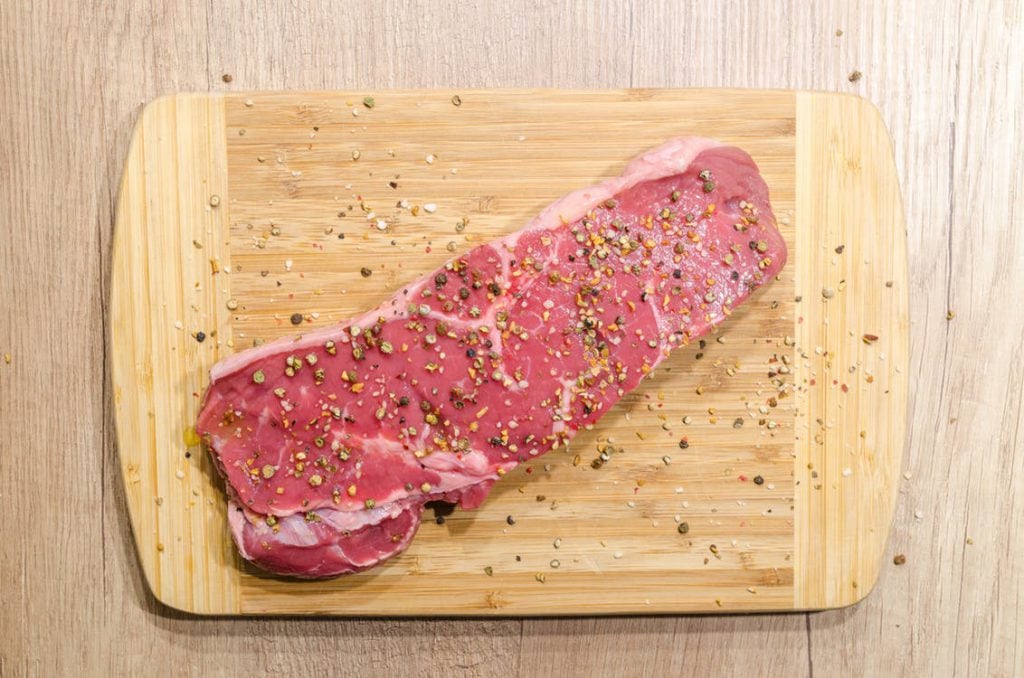 Should I use meat and dairy substitutes?
Should I use meat and dairy substitutes?
You absolutely can if you want to use these to scratch that meat or dairy itch. But remember, with a flexitarian diet you’re absolutely free to eat the real deal.
Regardless, it could be fun to try as many substitutes to meat and dairy as possible to see which ones you like and which you don’t. This might eventually enable you to indulge in your meat and dairy urges without actually resorting to the real thing. This means you could eventually end up completely vegetarian or vegan.
But which ones taste the best? Well, it really is a matter of personal taste. So, try alternatives in small amounts first to see if you like it or not before you buy in bulk.
Flexitarians Are Go!

Hopefully, you now have some good reasons to go on a flexitarian diet, and some practical ways to practice flexitarianism. If you want more information, you should seek out Dawn Jackson Blatner’s book on flexitarianism that is considered the diet’s bible. Who knows, maybe a flexitarian diet can be the gateway to becoming fully vegetarian or vegan.
Overall, a flexitarian diet can have some great benefits on your health, the environment, and maybe even your finances.
Are you on a flexitarian diet? Have you tried to be vegetarian or vegan before and reverted back to eating meat? Did you know about flexitarianism before? Let us know in the comments.
